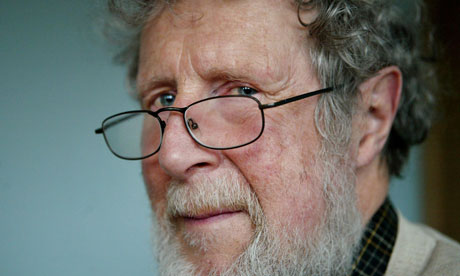
Not many academics have a phenomenon named after them, and when it happens they're mostly hard scientists. In physics there's the Bose-Einstein Condensate, for example, and the Josephson Effect. Eponymous phenomena are much rarer in the social sciences, for the obvious reason that consensus is harder to reach: the social world doesn't provide the unambiguous yardstick of a meter reading. All of which makes James Flynn such an interesting exception to the rule, as even in the argumentative world of psychology, the "Flynn Effect" is recognised as an accepted fact.
The "effect" is his discovery, based on careful examination of intelligence-testing results in a wide range of countries, that IQ around the world – as measured using the standard tests – seemed to be rising at the rate of three points every decade for as far back as the tests had been conducted. For some reason, human beings appeared to be getting smarter.
Given that intelligence testing is one of the most controversial areas in social science, the fact that Flynn managed to gain widespread acceptance for his conclusion is remarkable. This may have something to do with the fact that he came to the field as an outsider, as he is a political scientist, not a psychologist. But it also has a lot to do with his intellectual style, which is low-key, cautious and relentlessly empirical. In a field often characterised by flamboyant theorists, genetic fundamentalists and ideologues, he comes across as a sort of chartered accountant with a good grasp of statistical theory.
His magnum opus on the subject, What Is Intelligence?, was published several years ago by Cambridge University Press. This volume is partly an extended, updating footnote to his earlier work: he thinks, for example, that the reason IQ scores have been rising is a reflection of the fact that the world in which we live and work has become steadily more complex. In that sense, the brain is like a muscle: it improves with use.
But the book is mainly a compendium of Flynn's reflections on the implications of his "effect". He looks at the findings of IQ testing in the developing world, ponders the impact of rising IQ scores on the death penalty in the US, asks what happens to our cognitive abilities in old age, laments the tendency of psychologists to ignore sociology and tackles two subjects that he omitted from What Is Intelligence? – the relationships between IQ and race and gender. (He left them out, by the way, for a pragmatic reason: he didn't want his main argument – about rising IQ – to get "lost in a welter of acrimonious debate". Good call.)
One issue that Flynn doesn't really address is whether it is absurd to think of measuring human intelligence on a simple linear scale. He mentions Howard Gardner's theory of "multiple intelligences" only to dismiss it with a brusque reminder that scores on traditional IQ tests are still what matter. "The social realities of America are these," he writes; "being at the 90th percentile for the kind of 'intelligences' that get professional credentials opens up a thousand doors; being at the 90th percentile for softball does not. Every parent knows this."
Aside from this, though, Are We Getting Smarter? is full of thought-provoking – and sometimes disturbing – reflections. The chapter on IQ testing and the death penalty in the US is truly horrifying, because it reminds one that a score on an IQ test taken in a convict's youth can – literally – determine whether he lives or dies: if he tested at 65 or lower, he is defined as mentally retarded and escapes the death penalty. The problem is that, because IQ scores rise steadily, the standard tests have to be periodically readjusted ("renormed" to make allowances).
Flynn considers the case of a hypothetical pair of identical twins convicted of a capital offence. In 1975, when they were 11, both twins took IQ tests. One scored 65 on a recently "normed" test, while his brother scored 72.35 on a test that hadn't been adjusted since 1947. The former escapes the death penalty, while the latter is executed. Flynn then adjusts both test results to take account of renorming – and both brothers live. There are, it seems, lives, damned lives and IQ statistics. Of course, the US "justice" system is a weird example of the tyranny of numbers in a bureaucratic culture. But many British citizens of my (babyboomer) generation will recall how an IQ test taken at the age of 11 also once determined – and often blighted – lives in this country. It still does for many.
For my money, the most interesting chapter in the book is the one that deals with youth and ageing. Flynn says that over the past half-century a linguistic gap has opened between American parents and their children. The vocabularies of US adults has expanded significantly over that period, but their ability to communicate with their teenage children has declined. Why? Nobody really knows – and the gap narrows again when the kids enter the workplace.
On cognitive decline in the ageing process, Flynn has good news and bad news. The good news is that bright people retain verbal facility as they age. The bad news is that their capacity for analytical thinking declines, and the brighter they were when young, the greater is the subsequent decline. (In a rare flash of mordant humour, Flynn dubs this "the Bright Tax".)
Sobering stuff, eh? In fact, this reviewer is so depressed by Professor Flynn's musing about ageing that he has resolved to devote all his remaining analytical capabilities to designing a rocket-powered stair-lift. The aim: to get to the top before he has forgotten what he was coming upstairs for.

